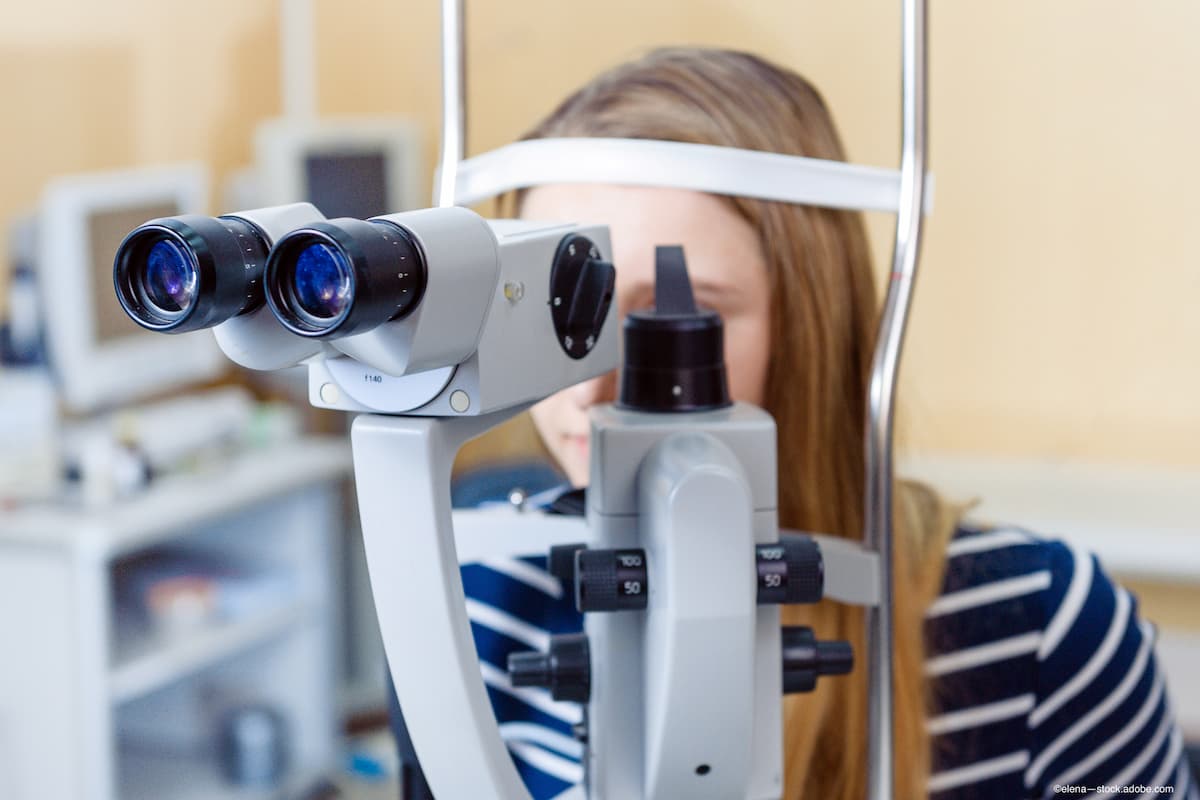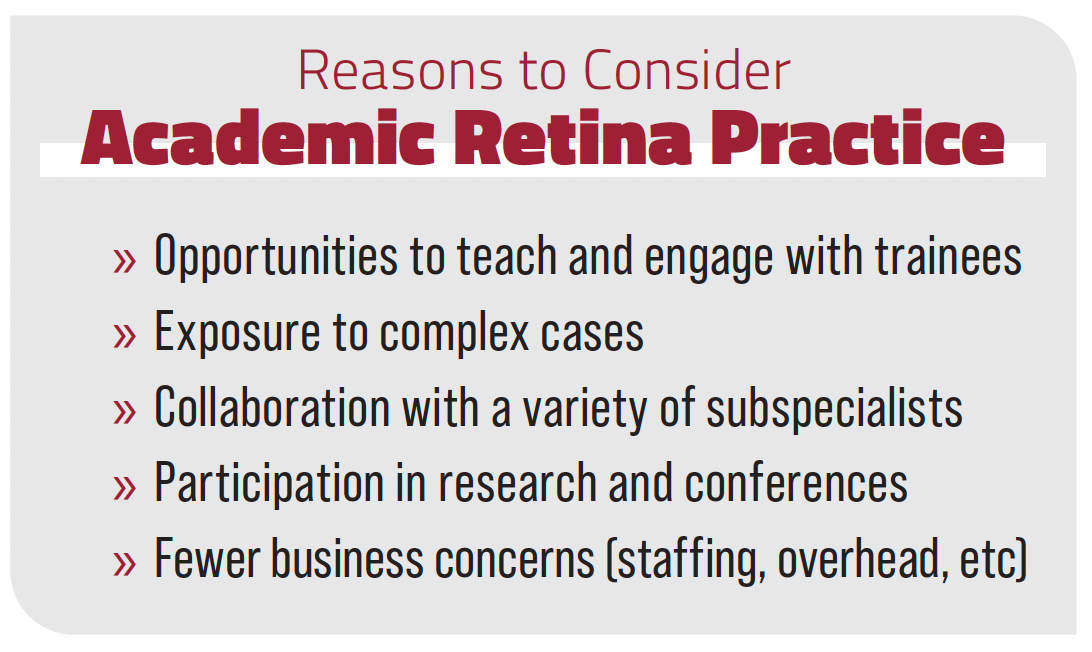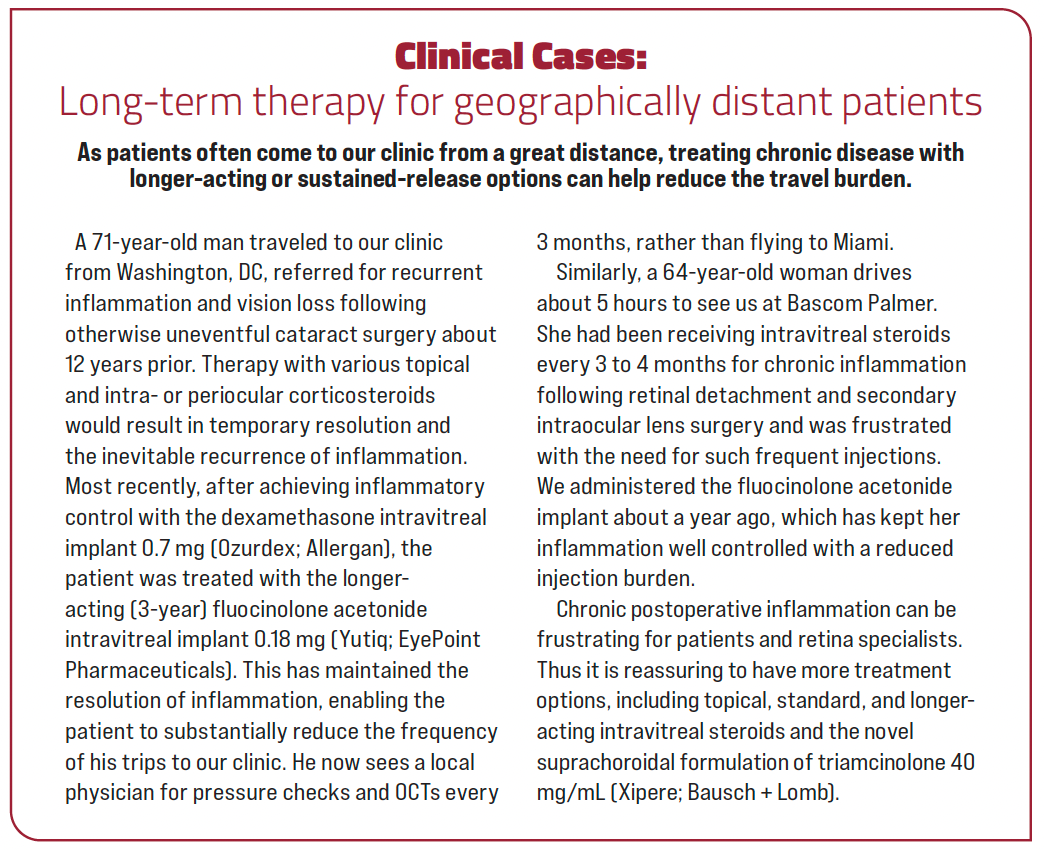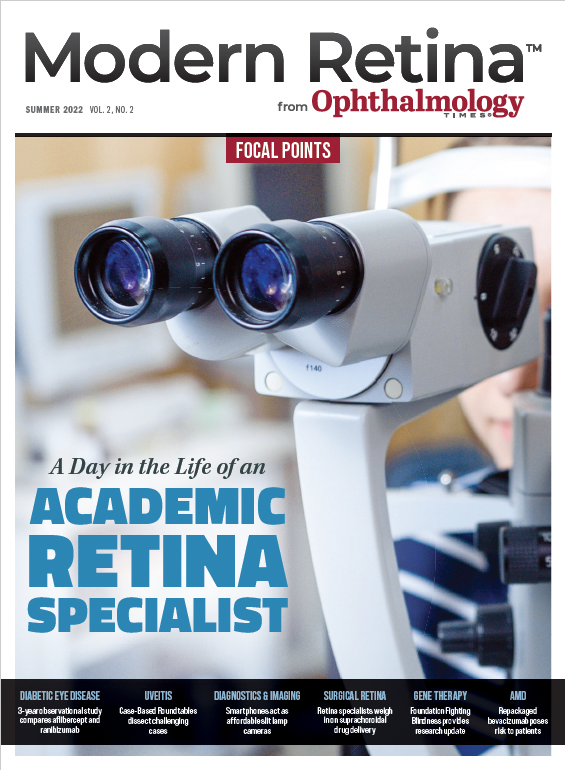Practice perspective: Academic retina
A window into the world of academic retina practice today.

I have been on the faculty at Bascom Palmer Eye Institute for nearly 6 years since completing my fellowship in 2016. I love being an academic retina specialist because it enables me to manage complex cases in a collaborative manner while also being involved in teaching and research at a level that might not always be feasible in a private practice setting. Regardless of practice type, the patients we see are similar—those with macular degeneration or diabetic retinopathy, for example, and those seeking surgical consultations. But in the university setting, we see more patients coming for third and fourth opinions, often from great distances. I thrive on that complexity and the opportunity to work with other specialists as well as trainees.
Complexity and collaboration

With medical students around, a lot of teaching is woven in with patient care. This requires some delicacy in the patient interaction and can slow things down a bit. But the reward is ongoing learning and access to the fresh perspective that students, residents, and fellows can bring. Additionally, we get to work alongside glaucoma, cornea, and other retina colleagues to manage complex cases.
These challenging cases are gratifying because of the collaboration: a huge benefit of academic practice is having access to other specialties in the same institution, under one roof. In addition, ideally, this mode of care enables us to come up with the best treatment plan possible for these underserved patients.
If a treatment that addresses a retinal issue also exacerbates the patient’s glaucoma, for example, there may not be a straightforward solution, so close collaboration helps us ensure we have accurately weighed the risks and benefits. The best way to address these cases is through extensive communication, investing time even before or after clinic hours to talk to colleagues, send notes, and make sure everyone is on the same page. An advantage of being in the same building is that I can sometimes pick up the phone and walk a patient over to see a colleague in the cornea or glaucoma service.
For example, recently I took care of a patient with complex and rare polymicrobial delayed postoperative endophthalmitis and retinal detachment after cataract surgery. With multiple retinal surgeries, the infection has cleared and the retina is attached; however, the patient’s cornea has decompensated and I am now working with one of my cornea colleagues 2 floors up on a plan for partial corneal transplantation.

Making the decision
In academia, we deal with a certain level of bureaucracy that may not exist in a private practice setting, so we give up some degree of control in exchange for other positive aspects of academic practice. On the other hand, we do not have to worry as much about managing employees, office overhead, rent, and staffing as someone in private practice might. In addition, we often have more opportunities to attend and present at conferences and greater access to educational activities, whether as a teacher or learner.
The clinic workload may also be somewhat less in academic vs private practice settings. I am in my own private clinic 2 days per week on average, whereas those in private practice may be in clinic 4 to 5 days per week. On my clinic days, I typically have 50 to 60 patients scheduled, of whom about 90% show up. I operate on an average of 1 day a week, and I spend 1 full day staffing a resident retina clinic. Finally, I have an average of 1 “academic” day per week, which is typically filled with administrative responsibilities for our fellowship and residency programs, clinical research, add-on surgical cases, and lectures for medical students.
My advice for those who may want to explore academic retina practice would be to think about the “why.” There are many advantages to being in private practice and some challenges inherent to the academic setting, so people who will thrive in academic retina are typically passionate about teaching, seeing complex and tertiary referral-type cases, and being involved in multidisciplinary care. We are fortunate as retinal specialists that research is possible in both the academic and private worlds; however, basic science and translational projects are typically easier to access in the university setting.

Newsletter
Keep your retina practice on the forefront—subscribe for expert analysis and emerging trends in retinal disease management.